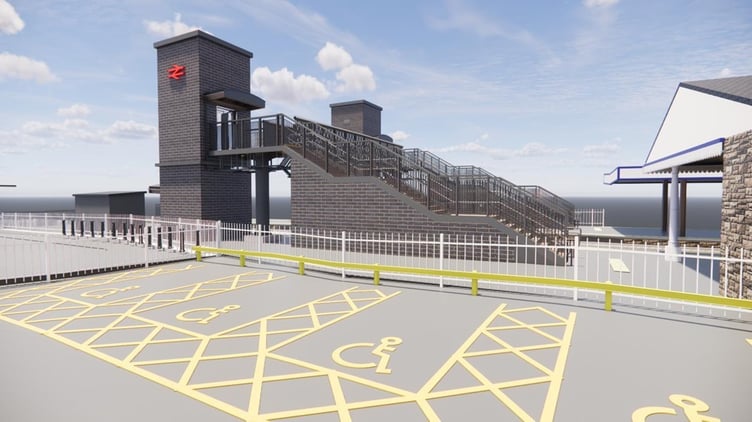TODAY sees landmark legislation introduced that aims to transform Britain’s railways into a simpler, more reliable network which puts passengers before profits.
The Railways Bill, introduced in Parliament today, will create Great British Railways (GBR) – a new publicly owned company which will bring together the management of passenger services and rail infrastructure.
GBR will be accountable to passengers, freight customers and taxpayers and will drive a relentless focus on responding to their needs. Responsible for co-ordinating the whole network: from track and train, to cost and revenue – GBR will deliver lasting change.
GBR, which will be headquartered in Derby, will create a simpler, more unified railway that delivers easier journeys and offers better value for money. This will include a new one-stop-shop app where passengers can check train times and book tickets.
The Railways Bill will also establish a strengthened passenger watchdog which will be a powerful new voice to investigate poor service and advocate for improvements.
Rail reform is a cornerstone of the Government's Plan for Change, with GBR working hand in hand with the Government’s missions to drive growth and opportunity, such as housebuilding, creating jobs and boosting productivity.

Transport Secretary Heidi Alexander said:
“Britain deserves a railway that is fit for the future - one that rebuilds the trust of its passengers, regenerates its communities and restores reliability and value for money.
“The introduction of this legislation is a major step towards a rail network that supports Britain’s businesses and delivers for the travelling public – paving the way for economic growth and access to opportunity across the country.”
Passengers are currently at the mercy of a complex rail system of over 17 different organisations, resulting in complex fares, delayed upgrades, disjointed timetables, and an industry with no single authority in charge.
The Railways Bill builds on the Government’s public ownership programme, which is already driving improved services. Southeastern and LNER are among the top five operators nationally for lowest cancellation rates. South Western Railway has more than tripled the number of new trains in service since entering public ownership, offering more comfortable journeys, and passengers can now use tickets across publicly owned operators during cancellations – at no extra cost.
Major changes in the Bill include:
- A strengthened Passenger Watchdog which will act as passengers’ champion and create a better, more inclusive railway for all. The watchdog will have powers to investigate poor service and demand improvements, as well as ensuring passengers have a clear and accessible service to escalate their complaints.
- Fare and Ticketing reform - the Railways Bill will empower GBR to bring fares and ticketing into the 21st century. Passengers will ultimately be able to purchase tickets through a new GBR website and app, replacing 14 existing operator ticketing platforms. Tickets will be available to purchase at station ticket offices, via ticket vending machines and onboard trains, to ensure all passengers can purchase a ticket with ease and travel with confidence. GBR will also build on the expansion of successful Pay As You Go and fares trials, making travel more flexible and simpler.
- Better business planning - the Railways Bill will place a duty on GBR to grow rail freight, meaning freight operators will benefit from a longer-term strategic approach to planning, including a new capacity allocation and timetabling process. This longer-term certainty for businesses will give critical stability to the railway’s supply chain and increase investor confidence and support the growth of the sector.
- Localised decision making - the Railways Bill will give the Devolved Governments and England’s mayors a new role and a bigger say in how the railway is run in their patch to improve local connectivity.

In a further move to improve services for all passengers, the Government will tomorrow publish the Accessibility Roadmap, which provides immediate actions to improve services for disabled passengers in the lead up to GBR’s establishment.
Commitments in the Roadmap include expanded eligibility criteria for the Disabled Persons Railcard, planning for the wider rollout of Welcome Points across the network, more consistent training for staff, and improvements on installing and maintaining key infrastructure, like lifts and escalators so that people can travel with confidence.
Rail Minister, Lord Peter Hendy, said:
"For too long, disabled people have faced barriers on our railway, but today marks a turning point. I'm proud to launch our Accessibility Roadmap, which is a practical plan to deliver real, measurable change, ahead of the establishment of Great British Railways.
"Accessibility will be one of GBR's key priorities, but we're not waiting for GBR to be set up – we're taking action now: improving the reliability of station lifts and escalators by introducing better maintenance, status reporting, and a standardised lift design; expanding eligibility for the Disabled Persons Railcard; and improving on-the-ground support for disabled passengers – including planning for the wider rollout of Welcome Points across the network.
"Crucially, the Roadmap isn't something we've dreamt up alone – it builds on years of engagement with disabled people. The experiences of passengers like Gemma, Neil, Danny and Simon, whose stories are featured in a new video to mark the launch, are at the heart of this plan.
"We know there is more work to do, but the Roadmap lays the foundations for a longer-term transformation under GBR, because an accessible railway isn't just better for disabled people – it's better for us all, and this is the start of building one together."




Comments
This article has no comments yet. Be the first to leave a comment.